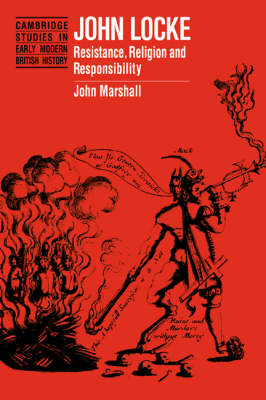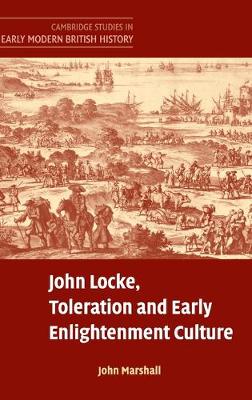Cambridge Studies in Early Modern British History
2 total works
This book provides a contextual account of the development of John Locke's political, religious, social and moral thought. It analyses many of Locke's unpublished manuscripts and relatively neglected works as well as the Two Treatises, the Letter Concerning Toleration and the Essay Concerning Human Understanding. Professor Marshall studies the development of Locke's political thought from absolutism to resistance, and provides significant revisions to current explanations of the immediate contexts and purposes of composition of the Two Treatises. He also sets out major accounts of Locke's moral, social and religious thought both as extremely important subjects in their own right and in order to challenge many scholars' interpretations of their influences on Locke's political thought.
This book is a major intellectual and cultural history of intolerance and toleration in early modern and early Enlightenment Europe. John Marshall offers an extensive study of late seventeenth-century practices of religious intolerance and toleration in England, Ireland, France, Piedmont and the Netherlands and the arguments that John Locke and his associates made in defence of 'universal religious toleration'. He analyses early modern and early Enlightenment discussions of toleration, debates over toleration for Jews and Muslims as well as for Christians, the limits of toleration for the intolerant, atheists, 'libertines' and 'sodomites', and the complex relationships between intolerance and resistance theories including Locke's own Treatises. This study is a significant contribution to the history of the 'republic of letters' of the 1680s and the development of early Enlightenment culture and is essential reading for scholars of early modern European history, religion, political science and philosophy.

